Select Faculty Books
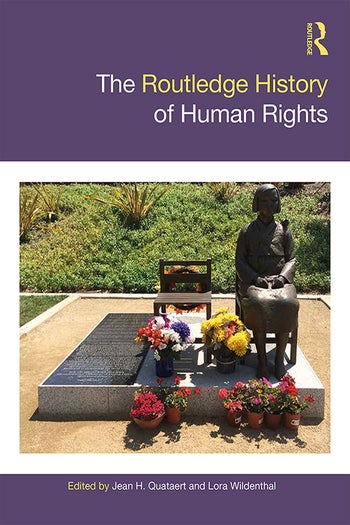
The Routledge History of Human Rights is an interdisciplinary collection that provides historical and global perspectives on a range of human rights themes of the past 150 years.
The volume is made up of 34 original contributions. It opens with the emergence of a "new internationalism" in the mid-nineteenth century, examines the interwar, League of Nations, and the United Nations eras of human rights and decolonization, and ends with the serious challenges for rights norms, laws, institutions, and multilateral cooperation in the national security world after 9/11. These essays provide a big picture of the strategic, political, and changing nature of human rights work in the past and into the present day, and reveal the contingent nature of historical developments. Highlighting local, national, and non-Western voices and struggles, the volume contributes to overcoming Eurocentric biases that burden human rights histories and studies of international law. It analyzes regions and organizations that are often overlooked. The volume thus offers readers a new and broader perspective on the subject.
International in coverage and containing cutting-edge interpretations, the volume provides an overview of major themes and suggestions for future research. This is the perfect book for those interested in social justice, grass roots activism, and international politics and society.
The authors Anthony Pinn, Jessica Davenport, Mark DeYoung, Justine Bakker, Jason Jeffries, Biko Gray, Sharde Chapman, Cleve Tinsley, and David Kline are part of the CERCL Writing Collective based at Rice University. In this innovative authorship project one member of the group produced the initial draft of each chapter which was then reviewed and revised in light of collective conversation. Something of the first author remains present, but the final version of each chapter encompasses their conversation with the other members of the collective.
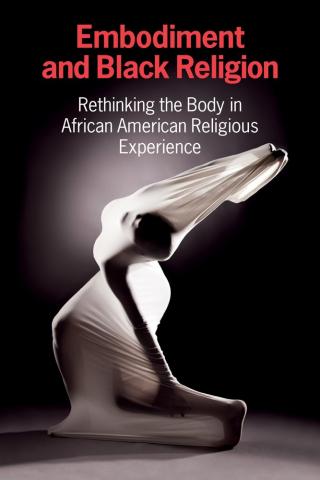
This volume builds on scholarship by scholars of African American religion that emphasizes the centrality of the body in religion and religious experience. The argument is grounded in Anthony Pinn's understanding of religion as an embodied quest for complex subjectivity, or push for more life meaning. But if Pinn's theory gets at what religion is, this volume picks up where he left off by giving careful consideration to religion's forms. It interrogates the embodied nature of the quest for complex subjectivity. Through placing different theories of the body in conversation with specific case studies that reflect the variety of ways in which bodies are entangled and engaged in struggles for life meaning, the authors argue that African American religion takes on various forms, including modes of cultural production as well as mundane, everyday rituals and practices. The volume expands current scholarship on African American religion and embodiment by going beyond an understanding of black religion as the "Black Church" and underscoring the variety of religious experiences, in both marginal religious traditions and in non-traditional forms of religion. The sustained and rigorous attention to theories of the body in this volume allows for a more robust understanding of what the body is and takes scholarship beyond the implicit understandings of the body as solely discursive. Finally, the approach is interdisciplinary. While grounded in Religious Studies, this book puts various theories and methodologies-from the social sciences to philosophy, and from visual studies to literary studies-in conversation with the religious experiences of African Americans.
The authors Anthony Pinn, Jessica Davenport, Mark DeYoung, Justine Bakker, Jason Jeffries, Biko Gray, Sharde Chapman, Cleve Tinsley, and David Kline are part of the CERCL Writing Collective based at Rice University. In this innovative authorship project one member of the group produced the initial draft of each chapter which was then reviewed and revised in light of collective conversation. Something of the first author remains present, but the final version of each chapter encompasses their conversation with the other members of the collective.
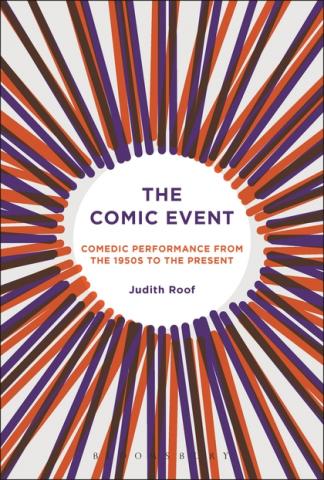
The Comic Event approaches comedy as dynamic phenomenon that involves the gathering of elements of performance, signifiers, timings, tones, gestures, previous comic bits, and other self-conscious structures into an “event” that triggers, by virtue of a “cut,” an expected/unexpected resolution.
Using examples from mainstream comedy, The Comic Event progresses from the smallest comic moment-jokes, bits-to the more complex-caricatures, sketches, sit-coms, parody films, and stand-up routines. Judith Roof builds on side comments from Henri Bergson's short treatise “Laughter,” Sigmund Freud's Jokes and Their Relation to the Unconscious, and various observations from Aristotle to establish comedy as a complex, multifaceted practice. In seeing comedy as a gathering event that resolves with a “cut,” Roof characterizes comedy not only by a predictable unpredictability occasioned by a sudden expected/unexpected insight, but also by repetition, seriality, self-consciousness, self-referentiality, and an ourobouric return to a previous cut. This theory of comedy offers a way to understand the operation of a broad array of distinct comic occasions and aspects of performance in multiple contexts.
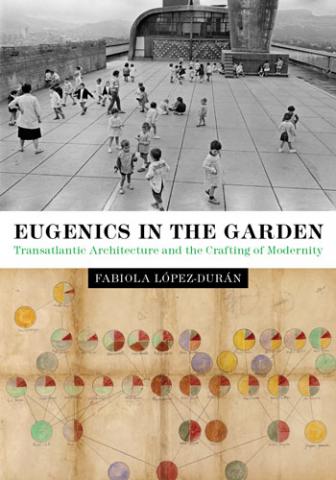
The first book to link eugenics with urban planning and the built environment, this volume traces how the “science” of race improvement spread from medicine to architecture as Latin Americans pursued a utopian project of modernization.
Sophie Esch specializes in twentieth and twenty-first century Mexican and Central American literature, music, and photography with a particular focus on violence, technology, and the environment. Her book, Modernity at Gunpoint. Firearms, Politics, and Culture in Mexico and Central America, (University of Pittsburgh Press, 2018), provides a critical exploration of the political and cultural significance of firearms in the Mexican Revolution, the Sandinista Revolution, postwar Central America, and the drug war in Mexico. Her current book project, tentatively titled The Elephant in the Room, analyzes questions of trauma and agency in relation to the presence of animals in war and postwar narratives from Latin America and Lusophone Africa. Dr. Esch has taught at Tulane University, Boston College, Colorado State University, and on Semester at Sea.
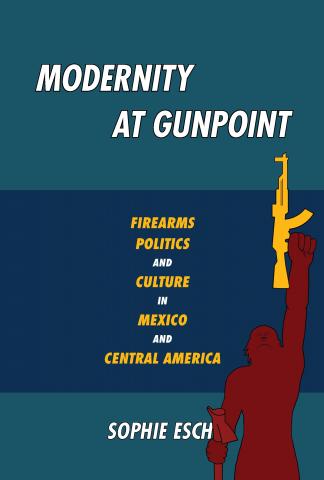
"Modernity at Gunpoint is a unique and groundbreaking study on the culture of guns and the way in which material objects and the imagination about them contribute to discussions of gender, politics, and ideology. This is a rare book that organically understands the shared and diverging histories of Mexico and Central America, in ways that have been rendered urgent by new migration and economic patterns.”—Ignacio M. Sanchez Prado, Washington University, St. Louis
"To the saying that ‘war is the continuation of politics by other means,' Foucault replied that ‘power is the continuation of war by other means.' Esch shows that, in the context of Mexican and Central American modern history, both sayings are relevant. Brilliantly argued, and using the rifle as a symbolic tool, she produces a striking new image of these cultures."—Jorge Aguilar Mora, University of Maryland

